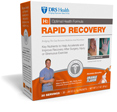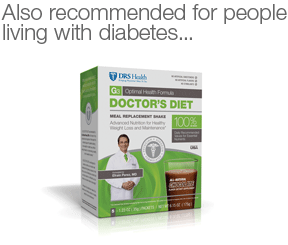
H3 Rapid Recovery Optimal Health Formula was developed by Dr. Marc Stevens, Orthopaedic Surgeon and Wound Care Specialist to meet a need of his patients for nutritional support for surgery prep and wound healing. H3 Rapid Recovery includes the essential nutrients required in the wound healing process, along with arginine, glutamine and bromelain. H3 is beneficial for those suffering from diabetes who are at risk of developing chronic wounds, and provides the essential vitamins and minerals necessary for improved immune function.
If you suffer from diabetes, you have been warned by your physician that wound care, especially of the lower extremities, is tremendously important for your health and wellbeing. Approximately 15% of patients with diabetes suffer from diabetic foot ulcers, which can grow progressively worse very rapidly.
According to the American Diabetes Association, more than 60% of non-traumatic lower limb amputations are performed on people suffering from diabetes. Lower limb amputations for those who have diabetes greatly increase the chances of mortality within 18 months after the surgery.
Unfortunately, the natural process of healing is compromised in a hyperglycemic environment. Lack of insulin can cause increased protein degradation and decreased collagen formation, diminishing the body’s ability to heal. Uncontrolled blood sugar levels, or hyperglycemia, can lead to tissue damage. Likewise, high blood sugar levels can cause the processes of chemotaxis, white blood cells traveling to the site of infection, and phagocytosis, the ingestion of bacteria by white blood cells, to be compromised, negatively affecting the efficiency of the immune system, making the process of wound healing difficult.
Other consequences of diabetes are nerve damage, which may prevent you from feeling the pain associated with a minor wound that is getting infected, and decreased blood circulation in your extremities, making it harder for blood to get to the site of inflammation, negatively affecting the wound healing process.
|



